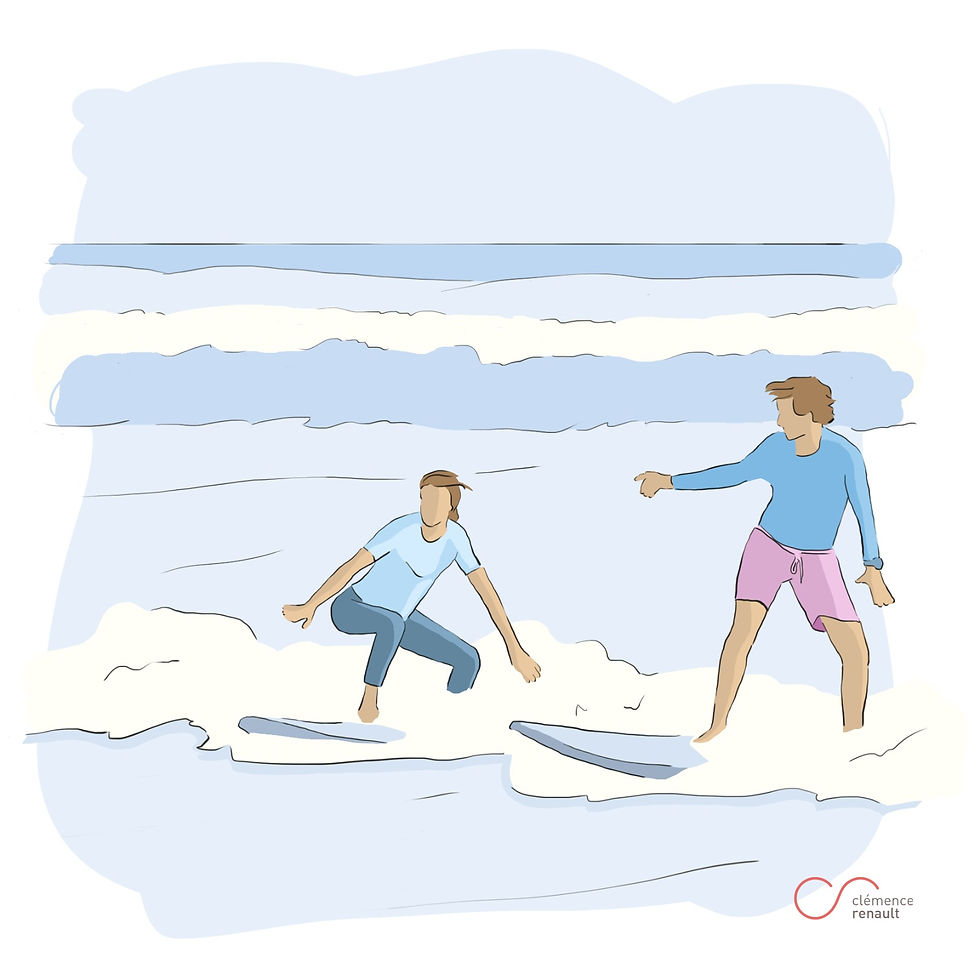Relax your body to balance your mind
- daphnepicq
- Mar 11, 2022
- 2 min read
Updated: Mar 14, 2022
Before talking about relaxing the body, there are a couple of things to keep in mind:
Thoughts are often the creators of our reality
We attract what we put out, based on what we believe to be true
For example, if we are convinced or convince ourselves that we are going to fail an exam or miss our train, our stress level rises. It alters the functioning of our thoughts and the various systems of the body. We thus multiply the chances that what we fear will happen.
To change this kind of belief, we have to somehow “reprogram ” our brain. The first step is to relax our body and thus allow the thoughts to become calm again.
So, at first, it is necessary to experiment and play with our sensations. There are numerous techniques, here are a few:
2-to-1 breathing, i.e. exhalation twice as long as inhalation
Connecting with and/or visualizing the heartbeat. On inhalation, we formulate the words “my heartbeat”, and on exhalation, “is calm”. Splitting the sentence in this way heightens the calming effect and helps to concentrate the mind.
Focus on your five senses: smell, taste, sight, hearing and touch. It is sometimes easier to activate them by focusing on an object, for example the cup of coffee in front of you. What colour, what texture, what smell, what taste does it have? And what sound could it make?
We have to find the technique that we enjoy the most. Try to look for a regular activity that helps you to relax your body, such as yoga, sophrology, or even a guided meditation carefully selected from the many that are available online.
The objective of these exercises is to return to our body with pleasure, in order to calm our mind and our thoughts. When we are afraid, anxious, angry, sad, or even extremely happy, we tend to ruminate and let our minds wander, therefore becoming ungrounded. Whereas a calm mind allows for clear, compassionate and conscious thinking, as well as a relaxed body.
Once the body is relaxed, we can focus on positive thinking, questioning the emotions and the needs that underlie them. For example, is our fear justified? Is what we fear certain? Likely? Or unsure? In any case, we must do our best to limit the risks and let go of what is beyond our control. If it’s not sure to happen, make a note for later: "think about it when it's certain".
For these exercises to be effective, it is best to practice them regularly and in a fun way (not under obligation and constraint). Three minutes a day is enough. We must, however, be aware that the more time we give, the better the results will be. The goal is to create a habit. The brain and the body learn to relax, through repetition and play. In this way, when stress occurs, the body will know how to react calmly. It’s a win-win situation![L3]
Reconnecting the spirit and the mind to the body allows us to be much more present and creative in our lives.

*Illustration Clemence Renault, https://www.instagram.com/clemence.renault/





Comments